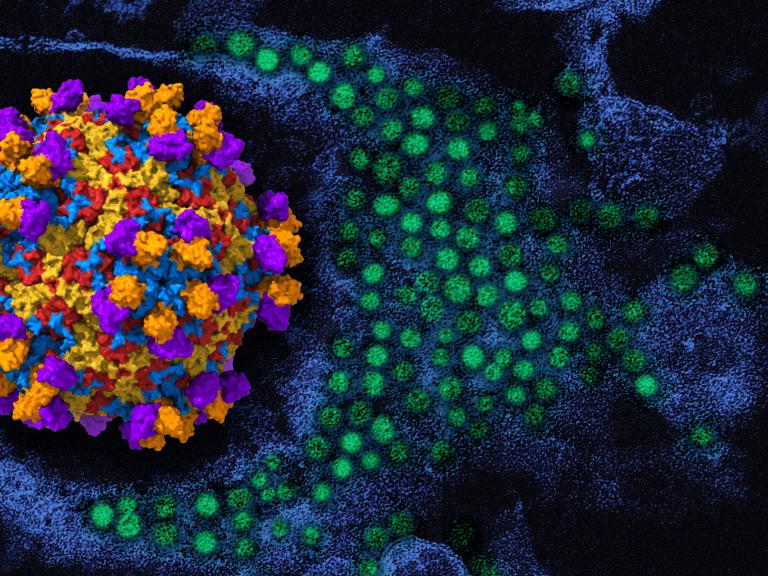In 2019, NIAID established the Infectious Diseases Clinical Research Consortium (IDCRC), a clinical trials network that encompasses the Institute’s long-standing Vaccine and Treatment Evaluation Units (VTEUs) and a consortium leadership group.
The consortium leadership group is chaired by David S. Stephens, M.D., of Emory University, and vice-chair James D. Campbell, M.D., M.S, of the University of Maryland School of Medicine. The group, which includes VTEU investigators as well as other scientific experts in infectious diseases, prioritizes candidate vaccines, diagnostics, therapeutics, and other interventions to test in clinical trials.
The VTEUs are located at institutions across the United States. They conduct Phase 1 through 4 vaccine and treatment trials, including clinical studies in collaboration with industry partners. Depending on the disease or condition, the VTEUs may establish study sites and enroll participants at locations outside the United States. Additionally, VTEU sites have the capacity to conduct human challenge trials—where healthy volunteers are exposed to infection under tightly controlled conditions—of influenza, malaria, and other diseases.
The VTEUs are ready resources to help NIAID respond quickly to public health emergencies, including COVID-19. For example, they rapidly enrolled healthy volunteers for NIAID’s mRNA-1273 vaccine study, and enrolled COVID-19 patients for the Adaptive COVID-19 Treatment Trial, meeting rigorous scientific standards and generating high quality data.
Highlights

NIH-Sponsored Trial of Enterovirus D68 Therapeutic Begins
June 27, 2024
The National Institutes of Health (NIH) is sponsoring a clinical trial to evaluate the safety of an investigational monoclonal antibody to treat enterovirus D68 (EV-D68), which can cause severe respiratory and neurological diseases such as acute flaccid myelitis (AFM) – similar to polio. Scientists are striving to better understand AFM, which has emerged in the United States with spikes in cases every other year, primarily in the late-summer months over the last decade.
Main Areas of Focus
To organize and conduct Phase 1 through 4 vaccine and treatment trials, including clinical studies in collaboration with industry partners.
Read more about this network: Infectious Diseases Clinical Research Consortium (IDCRC)
News Releases
Lower Dose of Mpox Vaccine Is Safe and Generates Six-Week Antibody Response Equivalent to Standard Regimen
April 27, 2024
COVID-19 Vaccination and Boosting During Pregnancy Protects Infants for Six Months
February 14, 2024
COVID-19 Vaccination and Boosting During Pregnancy Benefits Pregnant People and Newborns
August 11, 2023

